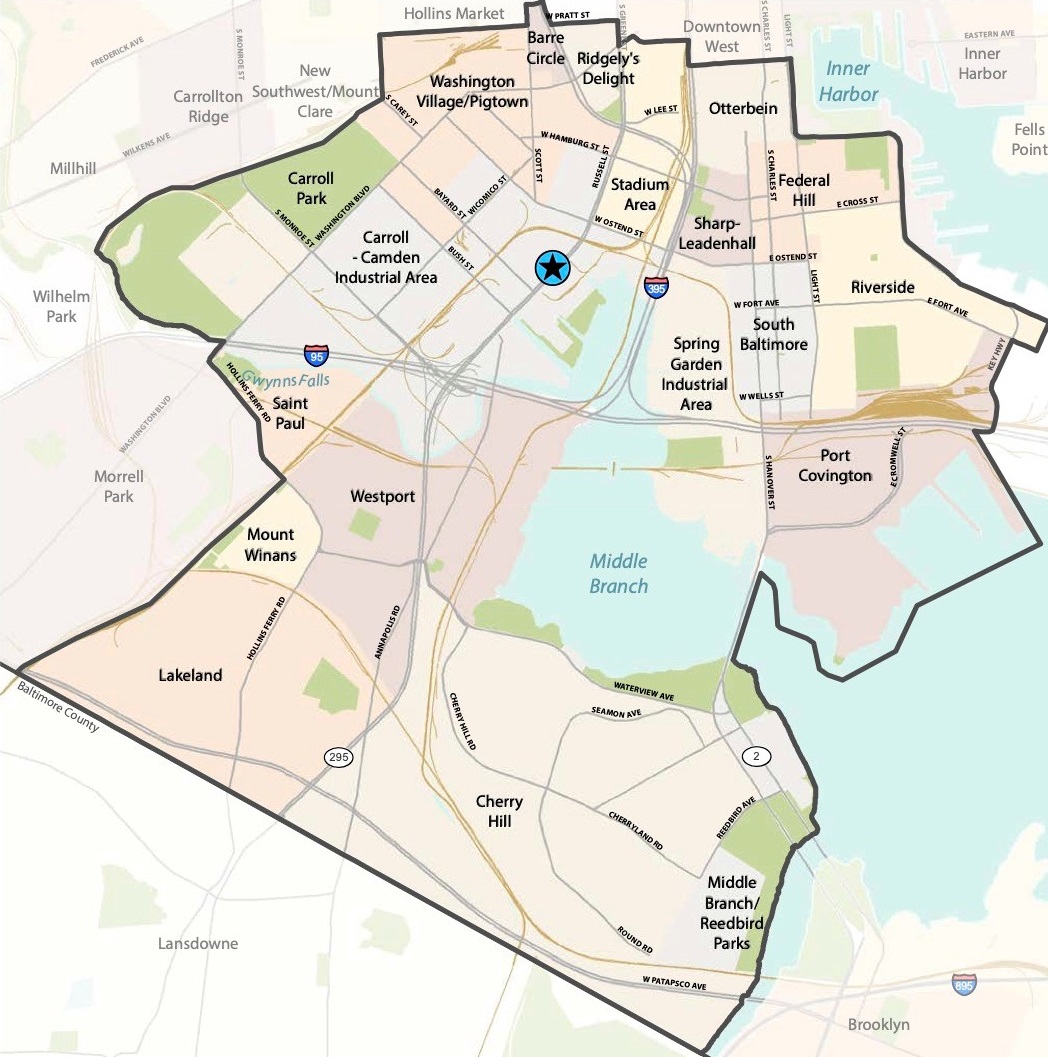Casino Local Impact Funds (CLIF) Program
Related Links
Casino Local Impact Funds Spending Plans and Quarterly Reports
Baltimore Casino Local Development Council
Local Development Council Meetings, Minutes and Resources
Casino Local Impact Funds
The state law that authorizes casino gaming in Maryland calls for a portion of revenues to directly benefit communities surrounding each of the casinos. Maryland defines this funding as Casino Local Impact Grant funds, which the City of Baltimore manages through the Casino Local Impact Funds ("CLIF") Program. Under that law, these funds may support “infrastructure investments, facilities, public safety, sanitation, economic and community development, including housing, and other public services and investments.” (See Maryland State Code § 9-1A-31)
Within the City of Baltimore, the geographic area designated to benefit from this funding source is centered on the Horseshoe Casino, and referred to as the "South Baltimore Gateway." (See map below)

South Baltimore Gateway -- Map current as of September 2023
Through Casino Local Impact Fund annual spending plans, the City of Baltimore makes funding available for purposes benefiting economic and community development in South Baltimore, guided by the nine goals of the South Baltimore Gateway Master Plan, which is also available as an Executive Summary. The current Fiscal Year 2024 Spending Plan can be accessed here.
The South Baltimore Gateway Master Plan Goals are as follows:
I. Transportation Connectivity
II. Environmental Sustainability
III. Safety
IV. Community Development and Revitalization
V. Economic Growth
VI. Education
VII. Health and Wellness
VIII. Quality of Life
IX. Infrastructure
As is required by Maryland State Code § 9-1A-31, Casino Local Impact Fund resources are allocated in consultation with the Local Development Council (LDC), an advisory group appointed by the Mayor to provide community input on how these funds are allocated in South Baltimore.
The Casino Local Impact Fund program is administered by the Baltimore City Department of Planning. Annual Spending Plans are developed with the nine Master Plan goals as a foundation, and in consultation with City Agencies, Local Development Council members, community partners, and neighborhood associations.
About the Local Development Council
The Local Development Council (LDC) is the body appointed by the Mayor to advise the City on developing the multi-year and annual spending plans for Casino Local Impact Funds. The Local Development Council has the responsibility to advise the Mayor on priorities, and the final funding decisions are part of the City budget approval by the Mayor and City Council.
Details about Local Development Council Members can be found here.
Legislative history
- Maryland Code - State Government; Title 9 - Miscellaneous Executive Agencies; Subtitle 1A - Video Lottery Terminals; Section 9-1A-31 - Local Impact Grants; Local Development Council (§ 9-1A-31)
Additional background
South Baltimore Gateway Partnership
In 2016 the State of Maryland and Mayor and City Council of Baltimore created the South Baltimore Casino Impact District Management Authority, which operates under the name South Baltimore Gateway Partnership, or SBGP. Since 2017, the State directs one half or fifty percent of Local Impact Grant funds dedicated for South Baltimore (an amount equal to the allocation for the City of Baltimore) to the South Baltimore Gateway Partnership, which is overseen by an independent Board of Directors. The Mayor and City Council President are each allowed to appoint two representatives to the South Baltimore Gateway Partnership's Board of Directors. South Baltimore Gateway Partnership submits its annual spending plan and quarterly updates to the Baltimore City Board of Estimates.
Casino Local Impact Funds contact information
For more information, please contact-
Chris Firehock, Community Development Grants Specialist
Christopher.Firehock@baltimorecity.gov
410-375-4713